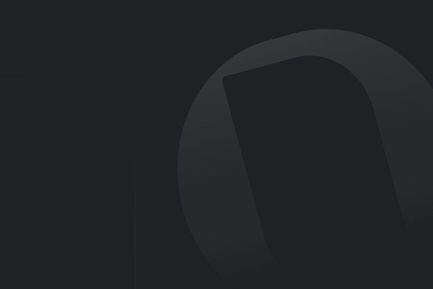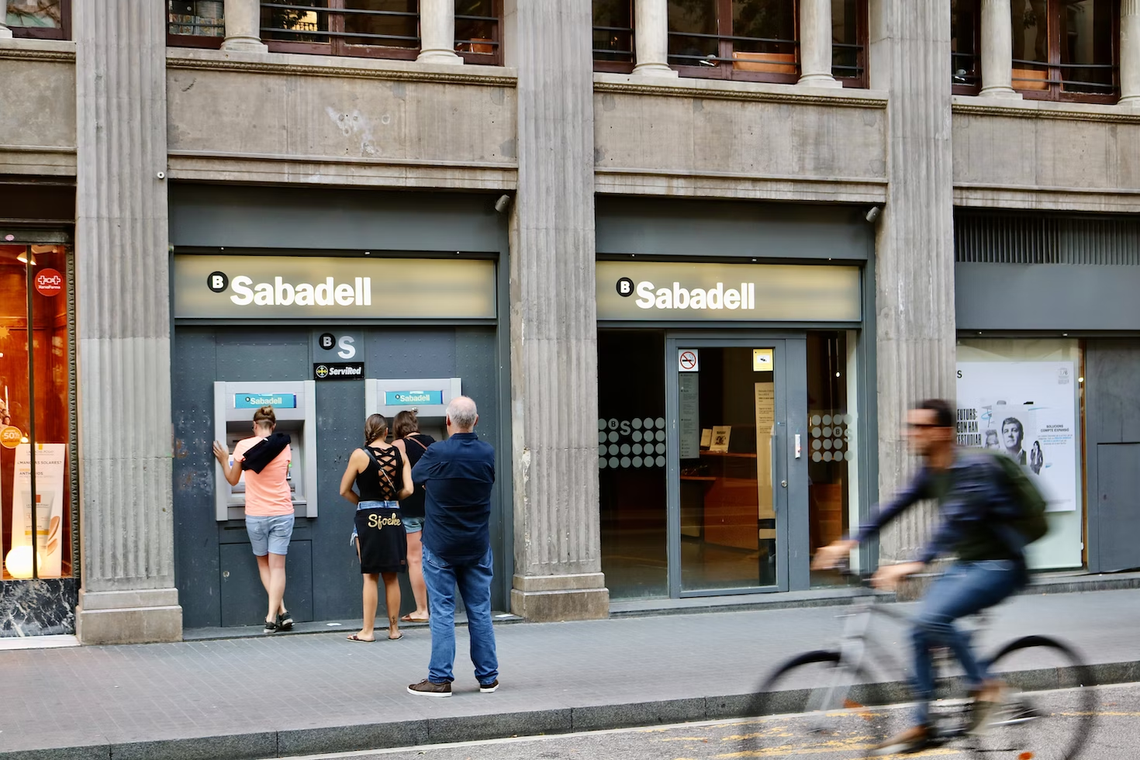
Apply to a foreign university with confidence
- Properly fulfilled documents
- Perfect motivation letter
- Support from a personal mentor
- Offers from several universities
Article score: 4 out of 5 (1 review)
Who conducts admission interviews, what questions the admissions committee asks and how to answer them. Lists of questions and recommendations for preparation.
Free consultation









An interview with the admissions committee is one of the most nerve-wracking stages of entering a foreign university. It is not compulsory in all universities, but if required, it can sometimes be just a formality, and sometimes — a key selection criterion. You can't predict its importance, so don't underestimate the interview. In this article, you will find guidelines for preparing and answering frequently asked questions.
The most obvious answer to this question is "to evaluate you." In general, that’s true. But universities always do it differently. And some pursue completely different goals.
All interviews can be divided into two types:
Evaluative interviews are the most common type. They are conducted by almost all prestigious universities in the world, including the seven Ivy League universities, Oxford and Cambridge, National University of Singapore (NUS), École Hôtelière de Lausanne (EHL), and others. For MBA programs at universities and business schools, interviews are the key selection stage.
Universities with informational interviews are rare. Although even among them there are quite prestigious ones, for example, Cornell. You can always see why the university conducts interviews and in what format on its official website. For example: Oxford, Cambridge, Dartmouth, MIT, Stanford, Cornell.
Interviews are either compulsory or optional. In the latter case, the selection committee organizes interviews selectively. This is influenced by two factors:
Usually, in such cases, the selection committee indicates that whether it will be possible to arrange an interview or not, will not affect the final decision in any way.
Interviews with an admissions officer are the most popular type. The conversation itself is relatively formal and largely influences the final decision on admission. Admissions staff meet with hundreds, if not thousands, of students every year, so you'll have to work hard to stand out from other candidates.
Typically, the interviewer has direct access to your package of documents, or at least a part of it (for example, only the motivation letter and recommendations). Your task is to smooth out all the shortcomings, if any (i.e., low grades during previous education), and confirm all the strengths from the application.
Admission officers are more familiar with the specifics of the educational process at the college/university than other interviewers. Therefore, this is a good chance for you to ask additional questions about the academic program, faculty composition, internships, housing options, etc.
University alumni conduct less formal interviews. They can also be evaluative and may include the same questions as the interviews conducted by the admission committee. However, graduates do not influence the final decision too much. Their main task is to fill out a questionnaire with impressions of the candidate and send a letter to the admissions office. It can be taken into account, but it is definitely not a decisive factor.
Graduates usually do not have any information about applicants before interviewing. So you have the opportunity to talk about your hobbies and academic achievements, and highlight your strengths without discussing grades and tests.
If you expect to learn more about the university itself, however, alumni are surprisingly not the best source of information, especially if they had graduated many years ago. Their knowledge is most likely limited only to their own experience on one of the campuses.
Some universities have ambassadors which are employed by the admission committee from among the students. This happens when the number of potential candidates exceeds the capacity of the committee to interview them. This type of interview is typical mainly of American colleges. No need to worry, these are not just random students — they are specially trained to ask the right questions. Before the interview, the ambassadors are given basic information about you, and afterward, they write a report. Usually, these reports do not play a major role in the selection of candidates, but if the ambassador really likes (or does not like) a certain candidate, their opinion can be taken into account. A big advantage of such interviews is that the ambassadors are studying at your future university at the time of the interview. They can provide very valuable information that you will not find on the university website: about student life, campus, and professors.

Each university is free to determine the format of the interview. Normally, universities conduct them on campus or near the applicant’s place of residence. The latter is possible if the university has a large alumni community around the world, like Harvard or Cornell. In other cases, interviews are conducted via video communication (Skype, Zoom, Google Hangouts), less often by phone. Due to the pandemic, all interviews were moved to the online format or replaced with something else (for example, Brown University asks applicants to send a video portfolio).
We’ll list the most common types of interviews further down in the article.
Its core is general questions about you, your motivation, career choice, future plans, career goals, etc. We have already said a lot about this format, so here are some examples:
You are given a problem/situation for which you need to offer a solution. The interviewer assesses your analytical skills, creativity, and logic. In case interviews, what is most important is not finding the right answers, but showing the process of finding the answers:
Listen carefully to the question, make notes. If in doubt, clarify the details. Then talk over your decision algorithm — this is how the interviewer will follow the logic behind your thoughts.
This type of interview is more often used by business schools — for example, the French ESSEC and EDHEC (and even for undergraduate studies). But many universities are introducing it for other specialties as well.
Examples:
Interviews of this type are rare. The job of the interviewer is to put you in a stressful situation in order to see if you will adequately respond and cope with pressure. These can be:
In a typical interview, candidates often use premade responses and do not show their emotions. In a stress interview, the interviewer observes your behavior and seeks to see your real character traits. The most important part is to maintain good manners, not to be nervous or afraid to reason, even if the interviewer tries to deliberately anger you.
This is an interview that primarily aims to assess your knowledge — in English and/or any other subject. Many of the conversations include specific questions that are relevant to the future specialty. For example, programmers may be asked what kind of future they see for certain technologies, what languages they have already used, and what their disadvantages are.
If the questions are general, then the main goal of the interviewer is to check the level of the language. In this case, the interview is an alternative or addition to the international exam (IELTS and others). This option is offered by some business schools, for example, by GBSB Global Business School.
The conversation is structured around a topic related to the direction of study. Shortly before the meeting (or at the very beginning), you are informed of the topic and/or given an article. In the latter case, the task is to read the article, identify key points and answer the questions of the committee on the topic. While reading, you can take notes, and then use them to defend your point of view. You will be asked general questions about goals and motivation, as well.
This interview format, for example, is used at Eötvös Loránd University (ELTE) in the psychology program. There it is called an oral exam. At the same time, the discussion is combined with the assessment of the language level.
A panel interview is a meeting with a committee of several interviewers at once. Among them are professors and teachers of different specializations in one direction of study, sometimes another student of the university. Questions depend on the goals of the committee and may include all of the above.
Panel interviews are used in all fields, but in medicine, their effectiveness is often questioned[1]. Therefore, new formats are now being developed for future physicians, such as MPI and MMI.
The MMI format involves a series of short structured interviews, or "interview stations." They assess qualities such as cultural sensitivity, mindfulness, teamwork, empathy, responsibility, and communication skills.
Before each mini-interview, you are asked a question/situation and given a couple of minutes to prepare an answer. You are going to talk to an interviewer who knows nothing about you, usually for about eight minutes. Sometimes you will talk with a specially trained person, while the interviewer is just watching. Each interview is assessed separately. MMI lasts from 30 minutes to two hours.
Situational questions should show how you think when making decisions, how critical your mindset is, whether you have well-developed communication skills, how you navigate current problems of health and society as a whole. The questions touch on medicine, but they don't look at your academic knowledge. First of all, your thought process is important. There are no right or wrong answers. The more aspects of one question you consider, the better.
Examples:
More examples here.
This format was invented at the University of Toronto. MPI consists of four independent interviews (about 12 minutes each) with short breaks, about an hour in total. Your conversation partner can be a doctor, a healthcare professional, or a medical student.
Each interview has its own goal:
Each interviewer has a list of leading questions on the topic, but in general, communication is quite free, like in a traditional interview. The interviewers assess your awareness, communication, and interpersonal skills. You will be viewed not only as a future university student but also as a professional.
MPI is very similar to MMI, but there are differences:
Keeping everything aforementioned in mind, there is no strict classification of university interviews. We just gave examples from our own experience. The format can be mixed. For example, a traditional interview is sometimes supplemented with stress questions and ends with solving a case.
Listed below are general and specific questions, and tips on how to answer them.
Most likely you will be asked this question first. The obvious answers are the location of the institution, a strong academic program, a cool university community, etc. Everything is correct, but here it is important to give as much specifics as possible. Highlight a few characteristics that appeal to you the most. The more unique they are for this institution, the better. Explore the university/college website for additional information. Get acquainted with the mission and goals of the university, its regulations and the charter. On the websites of some universities, there are "What are we looking for" articles — here the university specifies what sort of applicants they want. For example, here you can see who Harvard is looking for.
The main goal is to prove to the interviewer that you made a deliberate choice. Find what this university can give you that others cannot. For example, professors with similar scientific interests. Or there is a strong team in a sport that you do and you want to qualify. The main point is not just to list the multiple advantages of the university, but to highlight those most attractive to you.
The interviewer will want to see in you a sincere and persistent desire to begin the studies in this specialty and to definitely see it through. Your task is to show that you are in love with the chosen program, but not just "because it is good." State a specific reason that is meaningful to you. Which study courses will be especially useful for reaching your goals? What courses / program elements do you like? For example, you were attracted by the extensive experience of the teaching professor or by a practical / theoretical module in the curriculum.
This question is no longer about what attracts you to the program or to the university, but about how you can improve them. Sometimes the admissions committee asks you to name specific areas that you want to develop. First of all, they pay attention to science. It is best if you have your own idea for a research project or experiment. But you can name absolutely everything that interests you, including extracurricular activities. Volunteering, creative activities, work with foreign students, campus improvement, etc.
Answering this question, there is a risk to look narcissistic. So think carefully about what makes you stand out from other candidates. The main difficulty is to highlight your talents, but not to over-praise yourself. Just an adjective is not enough. To say "I am more determined / ambitious / energized than others" is to say nothing. Instead, you need to find how your combination of qualities, interests, and talents can fit into the student community.
This question has much in common with the previous one. Only here, the contribution to the university must be tied to your unique abilities / skills. For example, you are programming and you have an idea to create a mobile application to keep your campus / city clean and green. Your goal is to join efforts with the university's eco-activists and invite them to implement such an initiative.
You can also share the unique experiences that have helped you develop some valuable qualities or skills. For example, at school you combined studies, volunteer activities, and part-time work, so now with the developed time management skill, you can also be active and do additional research without harming your academic performance.
You are not expected to list all the negative qualities, bad habits, and unfortunate events. Everyone has weaknesses and failures. It is important to be able to deal with them. This is what the selection committee wants to hear.
The most important thing in your answer is how you will describe your failure / bad experience, from which angle you will show it. Be sure to say what you learned from it, how you dealt with the consequences, what steps you took so that this does not happen again in the future. Here are a couple of examples:
The question of strengths is very broad. Everything can be mentioned here, from soft and hard skills to personal qualities and unique abilities. Teamwork, organization, resistance to stress, analytical mindset, quick learning, etc. In this case:
The essence is the same as in the previous two questions, only here you are asked to focus only on the academic strengths and weaknesses. In other words, what is easy for you at school / university, and what is only achievable with great effort. This is more often said about subjects or related skills.
The short answer "I am well versed in exact sciences / literature / …" is not enough. You need to explain how you understood your strengths, what benefits you have already been able to gain from them, and what you will be able to gain in the future. For example, you are a good writer and because of this, you have excellent grades in all subjects related to text and languages. Or you are constantly winning mathematics contests — in-depth study of the subject allowed you to go beyond the curriculum and outline the directions of future research at the university.
As for weaknesses, we do not recommend saying that you do not have them. It is hard to believe and sounds arrogant. Don't be afraid to sound inept. The important part is perseverance and hard work. The fact that you are not very good at some subject or skill is not bad in itself. It’s bad if you don’t make an effort to fix the situation. For example, you are great at analyzing historical events and their consequences, but you have a terrible memory for numbers. To memorize the dates you want, you regularly try different techniques. It took you several months, but in the end, you made significant progress.
Leadership skills are also a strength. And you don't have to hold a high position, give motivational speeches for a thousand people, or organize large city events. You may have:
Leadership is often manifested in little things. Any story where you took responsibility in a difficult situation or became a role model for other people will do.
Tell the committee about subjects and courses that you were particularly interested in at school or that you are looking forward to at the university. They need to be linked to your specialty / study program. But it shouldn't be a phrase like "I want to study literature because I have loved reading since childhood." Pick one or two topics within the subject (in the case of literature, these could be writers / genres / periods of literary history) and tell why exactly they kindled this spark in you. At the same time, it is advisable not only to indicate interest but also to suggest specific aspects that you want to explore during your studies. For example, the writers of the Renaissance and their influence on modern literature.
If you are an active person, you will not have any difficulties with this question. But never stop at simply listing your hobbies. You can name several areas of activity to give a bigger picture. But it is better to devote 80% of your answer to one area or even a specific event — what your role was, what it meant to you, what this experience taught you.
For example, at university, you were an athlete, a volunteer, a student council member, and an eco-activist. But it was sports that fascinated you most of all. You represented the university at the city and national events and won five competitions. Thanks to this, you have developed willpower, acquired good habits, and became more resilient — not only in sports but also in school and in life.
This is probably obvious, but just in case we will warn you. "Making a lot of money" is definitely not the best answer. Describe how you see your success personally: who you want to become, what you want to do and what you want to achieve, so that you can consider yourself successful. Moreover, this can be not only a career, but also a contribution to society. Also, avoid clichés and vague phrases, such as “create a better future for all.”
Be clear about your career plans. The goal of "becoming an expert in your field" is good, but not measurable. Add details: “become an expert in molecular engineering, publish at least five papers on the topic and write a monograph” or “launch an IT startup in Germany and develop it into an international company.” You can also break your goal down into smaller ones, such as five years from now, ten years from now, and in the long term.
Be sure to link your answer with the university — what it will give you that will bring you closer to this goal. For example, there are several professors who are engaged in research in the narrow field you need. Or you are attracted to a career center that can help you find an internship and develop the necessary connections.
Most of the questions for future bachelors we have already listed above. The most important thing when applying for a Bachelor's degree is to understand the benefits of:
Other questions are about school, favorite subjects, extracurricular activities, hobbies, and interests.
Additional questions may be asked depending on the institution and the type of interview.
With this question, the admission committee checks:
"We have bad teachers, I would find new ones" — that answer is incorrect. Be polite and offer more specific actions. Think about the strengths and weaknesses of your school. What problems are there? What do students often complain about? What are the consequences? What can be done to remedy the situation?
For example, you have a school with a musical emphasis, but the classrooms are underequipped. You propose to reallocate the budget and spend more money on classroom renovation and musical equipment. This way, more students will be able to rehearse and learn to play the instruments.
It is important that you take care not only of your own comfort but also of the personal and academic development of all students and the school itself. This way, you will show your willingness to participate in the life of your future university. You may find that music helps you develop skills that are useful in life. In addition, the school must correspond to its status, and with better classrooms, this will become possible.
This question is meant to show your values and priorities. Anyone can be the subject of admiration: a famous person, a relative, or just an acquaintance; one person, a group of people, or a collective image. In any case, whoever it is, the name alone is not enough. It is necessary to explain the reasons. What exactly do you find impressive? What qualities / actions / achievements do you respect? Do not forget about the details — specific stories where your "idol" has shown themself from the best side.
Talking about your favorite book is a way to learn more about your interests and to make sure that you have a habit of reading to broaden your horizons. In addition to the author and the title, the committee wants to hear why you like this book so much. Did it inspire you? Did a hero resonate with you? Did the book teach you something that was reflected in your opinions and/or actions? Or maybe the book is entirely responsible for shaping your values and outlook in life.
Sometimes the book is replaced by a movie or a news item that has interested you lately. So, just in case, keep several alternatives in mind and try to follow the current information feed.
Universities want applicants to come to them with clear goals. Unfortunately, yesterday's schoolchildren often do not understand why they need higher education. Of course, it's not worth saying that your parents forced you or that you can't wait to get to student parties. Your job is to explain how education can help you achieve your professional and personal development goals. What are these goals? How does studying convert a hobby into a profession and a way of earning money? How does college life contribute to your intellectual and emotional growth?
The commission asks such lighthearted questions in order to have a complete picture of you as a person. Your leisure time does not have to be related to your studies. Any pastime will do, as long as you tell what attracts you to it. Try to come up with a non-trivial answer: many people like to go out with friends, but few people like to assemble functioning robots from construction sets or compose music.
Keep in mind that you are unlikely to be trusted if you say that you read textbooks and solve problems for fun. But if you still love intellectual activities, try to explain why it is entertaining for you.
Interview for a Master's degree is more serious than for a Bachelor's degree. It is a lot like a job interview. There are the same general questions, as well as those related to previous education, research, professional experience, and career plans.
Another difference is more formats. We have already discussed the most popular types (traditional interviews, case interviews, and others) above. However, depending on the university and specialty, instead of an interview, there may be a specialized practical test, not to be confused with international exams. Another format is presentation. It is more typical for research programs (MPhil, MRes). Here, applicants submit a research proposal with a focus on methods. This oral defense is sometimes found in programs that develop or already require leadership qualities from applicants, such as MBA.
Within the university, there may be local peculiarities of faculties and schools. Therefore, check the interview requirements on the official website.
This question gives you a chance to explain the low grades in a previous degree. If you are sure that the C in History in the fifth semester does not reflect your knowledge and ability, then tell what circumstances did not allow you to succeed at the time. It could be a personal event or a research project that took up all of your time. Keep in mind not to overdo it with excuses and not reduce your response to complaints, blaming other people. This will make you look bad.
Make a list of achievements and choose the one that shows your best qualities in action and resulted in something noteworthy. For example, during your undergraduate studies, you were a member of a volunteer organization. At that time, the team was growing slowly and consisted of only 10 people. You established contacts with representatives of universities in your city, began to actively develop social networks, agreed to participate in several city events. As a result, another 25 students came to the team and helped to realize five international projects.
It will be a big advantage if you link your achievement with the university and the field of study. Perhaps this event once influenced your desire to enroll in a Master's program or the choice of the specialty. For example, thanks to the experience you gained, you became actively involved in marketing. And a Master's degree in this area will help you to reach a new level — to make projects that draw public attention to social problems.
This is a more specific question about career goals. It is more common in Master's programs since they last only one or two years and after 5 years you should definitely achieve something. Your answer should be related to the program. Program websites often have a special section (career list / future career / after the graduation), which lists the specialties in which a student can work after graduation. Tell exactly how a Master's degree will help you in realizing your plans. This can be a research activity as a PhD or work in a company. The more specific the better. It will be a big plus if your goal will benefit the community. But avoid the two extremes:
In general, stay realistic, but don't be afraid to set ambitious goals.
It is impossible to give universal recommendations for this question. Depending on the mood of the interviewer, they may be more pleased with your commitment to one single university, or, conversely, resourcefulness and accounting for a possible failure. A key element of any answer is commitment and the ability to learn from your mistakes. For example:
Passing the admission competition for MBA programs is often much more difficult than for a regular Master's degree. The admission committee wants to see not just motivated students, but young professionals, future managers. Admission often requires several years of professional experience. Therefore, almost all questions are aimed at analyzing previous work experience and identifying managerial skills (leadership, delegation, teamwork, etc.) in candidates.
Sample questions for Harvard Business School can be found here.
The point is not to list all jobs and responsibilities. Your task is to briefly (ideally in 2-3 minutes) outline the main achievements and turning points. Start with your first steps in the professional field. How did your previous education help you start your career? Why did you change (or did not change) your place of work? If you are working now, what are your responsibilities? Additionally, the commission evaluates how you structure the response and select key information.
In the end, you should smoothly approach the decision to enroll in an MBA. But you'd better wait for the next question — "Why do you need an MBA?" We talked about how to explain the choice of the program in the section of general questions.
A career in business administration is impossible without leadership skills. But, no matter how strange it may sound, it is not enough to simply apply them. Read about different leadership styles. Choose the one that is closest to you, but don't get hung up. Show that you know the advantages and disadvantages of each style and can apply them as appropriate.
With this question, the panel tests your ability to think critically and solve problems. Of course, it is desirable that the answer be related to work. But you can also mention other areas, from academics to family.
It is not so much the decision itself that matters as the manner of your reasoning. How you think, how you use data, how you deal with contingencies. The best candidates look at all sides of the issue. Feel free to tell that it didn't go smoothly the first time. Healthy self-criticism is only an advantage.
At interviews with the admissions committee, students may often be asked to introduce themselves. "Tell me about yourself" is a request that can catch anyone, even the most confident person, by surprise. Usually, a short 30-60 second self-presentation is required, known as the Elevator Pitch. Therefore, it makes sense to think over the answer in advance.
The idea of an elevator pitch boils down to one goal — to "sell" yourself and demonstrate your uniqueness in the shortest possible time, literally over the same amount it would take to ride an elevator. It is important not to go into lengthy reasoning. You may be stopped when the time runs out. Eliminate obvious or overly-detailed information and speak on point right away. If your speech is too long, you risk not getting there.
There are many options for what you can or should say. But almost all of them boil down to answering a few basic questions:
At the end, it is important to give the interviewer a chance to answer your speech, and it is ideal to link it with the university. For example, you might say that you would like to know more about the scientific activities of the faculty. Or perhaps you are interested in internships that the Career Center offers and that are just in line with your career plans.
Useful links with examples:
Be sure to practice your speech in front of others to sound natural. It's good to have templates, but memorizing everything without the ability to adapt to the listener is not a good idea. The commission needs a person who can present himself in any situation, be it a job interview, presenting a research / product / startup / project to investors, or meeting new people in a friendly company.
Even if you don't have to talk about yourself in this format in an interview, the chance to make useful connections may appear unexpectedly — at a job fair, at a party, or even while walking the dog. You won't be able to prepare for everything at once. So we recommend for the future to work out a few basic statements that you can adapt depending on the situation.

There are programs in the League where interviews are obligatory for every applicant, such as Architecture at Cornell University. In other cases, they are either optional or "recommended." But universities are still trying to talk to the majority of applicants who have passed the initial selection.
If the number of interviewers is limited, not everyone gets interviewed. The admissions committee selects students who have not presented themselves with enough details in the application documents package. Is this good or bad? The Ivy League enrolls students with and without interviews. But if you are invited, do not panic and do not refuse — this is another opportunity to confirm your interest and learn more about the university.
Interviews are conducted by university graduates around the world: face-to-face, by phone, or via Skype. You decide the time and place together with your interviewer. If the interview is face-to-face, it usually takes place in a public place such as a local cafè. Remember that the interview starts from the moment of the first contact with your interviewer. Your communication before and after the conversation itself will also become part of the final report.
There is a starter list of recommended questions, but each interviewer brings something different. The format itself is more like a dialogue than a formal QA. Typically, interviewers do not know anything about you before the meeting, other than your name and previous place of study. Sometimes they ask to send a resume in advance — this way they find similarities with their own experience, from which they can start a conversation.
Most of all, the interviewer is concerned with your experience, stories from your life, extracurricular activities. But it is not enough to list them, the real task is to show how all this influenced you, your academic interests, your perception of the world, goals in life, etc. In this case, the interviewer can express an opinion that contrasts with yours. For example, you named your favorite book and you may well hear "I didn’t like it at all" or “I don’t understand why this topic is important at all”, etc. The goal is to see your reaction. Agreeing unconditionally or, conversely, starting a fierce argument is not the best solution. Always give reasons for your position and take into account the reasons of others.
After the talk, the interviewer writes a report with their observations: how curious you are, what character traits, values, and interests you have, how you participate in the life of society, how well you fit the university and whether there are reasons for doubts about your candidacy. In some universities, the interviewer gives a final grade, from "strongly agree" to “strongly disagree.”
It is difficult to say how much such an interview affects the final decision. The most important part is to understand that the report itself is a document, along with your personal statement or SAT certificate. But, as a rule, it is the last to be assessed in order to complete the image of you and to resolve doubts.
Sample questions:
* Please note that in 2021, Brown replaced interviews with video portfolios. For the current format and recommendations for preparation, see the university website.
Compared to the Ivy League, Oxford and Cambridge interview formats are completely different. Here, much more attention is paid to the future specialty. Interviewers are academic mentors, university teachers. Usually, it is two people, sometimes more. At Oxford, for example, if you are applying for an interdisciplinary program, there will be an interviewer for each subject. Sometimes it can even be different interviews.
To begin with, you will be asked a few general questions, mainly based on your motivation letter. For example: "Why did you choose this particular university and the program?"
So, why Cambridge or Oxford? As we already know, there are no universal answers. But these two universities have a few features that are useful to remember and, if necessary, to mention. These are:
Another part of the interview is the questions about subjects. The starting point is again the motivation letter and the written work attached to the application. The books / studies / concepts / events you mentioned are likely to be discussed with you. Try not to forget the authors, titles, and synopses.
Be sure to read additional literature: articles, research papers, popular science books, literary texts (depending on the specialty). This way, you can give additional examples, and not just from the school / university curriculum.
Questions can be both theoretical and practical. For example, economists can speculate about the application of mathematical functions to economics or solve a specific problem. Another option is that the interviewee is offered to familiarize themself with the material (text, poem, schedule, task, physical object), and then is asked questions about it.
Sample questions:
Oxford:
Cambridge:
Here are some more examples of how universities in different countries conduct interviews.
At the Swiss business school École Hôtelière de Lausanne (EHL), students go through two interviews.
The first interview takes place remotely. You will be sent 5-6 questions to which you need to record the answers in a video. The advantage is that you have the opportunity to practice before you record and send it to the committee. The answers are reviewed along with the rest of the package of documents.
Successful candidates are invited to a special Selection / Motivation Day on campus in Switzerland or at one of the abroad branches. There you get to know the campus, take part in team assignments, take small computer tests and have another interview. There are two people talking to you — they can be members of the admissions committee, teachers or senior students. The interview lasts 40-45 minutes. The questions are usually traditional — about your motivation, goals, skills, extracurricular activities, etc. The admissions staff will also appreciate it if you have experience in hospitality (EHL specializes in Hospitality Management).
If you cannot come to campus, you can contact the admissions office, which will assess your case. Foreigners have access to the video interview option. Due to the pandemic, the selection days at the Swiss school were held online.
As a rule, an interview at the University of Toronto is compulsory. Candidates not invited for interviews are rejected. The format depends on the program you are applying for. For example:

Be honest and talk about what you really care about. Not what you think the interviewer wants to hear.
60+ countries
we work with
$1,000,000 saved
by students through scholarships
6,400 offers
our students got